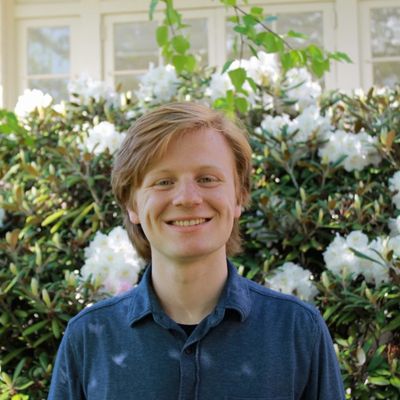What are you doing for your research project?
My research project in Dr. O’Neil’s lab focuses on how the A4V superoxide dismutase 1 (SOD1) mutation in Amyotrophic Lateral Sclerosis (ALS) affects mutant astrocyte neuroinflammation. By determining the mutant neuroinflammation response, I hope to identify pathways or mechanisms associated with motor neuron degeneration in ALS. I employ various techniques ranging from cell culture, inflammation assays, Real-Time qPCR, and immunostaining to understand the effects of the A4V SOD1 mutation on astrocyte morphology and gene expression.
Why did you choose to major in CIS?
My research project in Dr. O’Neil’s lab focuses on how the A4V superoxide dismutase 1 (SOD1) mutation in Amyotrophic Lateral Sclerosis (ALS) affects mutant astrocyte neuroinflammation. By determining the mutant neuroinflammation response, I hope to identify pathways or mechanisms associated with motor neuron degeneration in ALS. I employ various techniques ranging from cell culture, inflammation assays, Real-Time qPCR, and immunostaining to understand the effects of the A4V SOD1 mutation on astrocyte morphology and gene expression.
What activities do you do on campus?
My research project in Dr. O’Neil’s lab focuses on how the A4V superoxide dismutase 1 (SOD1) mutation in Amyotrophic Lateral Sclerosis (ALS) affects mutant astrocyte neuroinflammation. By determining the mutant neuroinflammation response, I hope to identify pathways or mechanisms associated with motor neuron degeneration in ALS. I employ various techniques ranging from cell culture, inflammation assays, Real-Time qPCR, and immunostaining to understand the effects of the A4V SOD1 mutation on astrocyte morphology and gene expression.
What are your plans after graduation?
I intend to enroll in a Ph.D. program to work on disease models with the intent of either becoming a Professor or entering industry after I finish my program.
How did the CIS-linked major help you at Wesleyan and how do you think it is preparing you for life after Wesleyan?
The CIS-linked major equipped me with a broader perspective that I can now employ when approaching scientific questions. The CIS-linked major also was incredibly helpful over my junior to senior year summer as they supported my research in Dr. O’Neil’s lab during June and July. That experience allowed me to explore what it would be like working in a lab full-time, and I was able to determine research was something I truly wanted to pursue in the future. Over the summer, I was able to gain valuable independent research skills and work one-on-one with Dr. O’Neil.
Any additional comments?
The CIS-linked major is a small but thriving community that I would recommend people consider joining! If you are at all curious about different areas of science, this program is perfect for you. If you would like to know more about the program, I would recommend that you come to one of our many social events! Also, feel free to email me with any questions you have.


